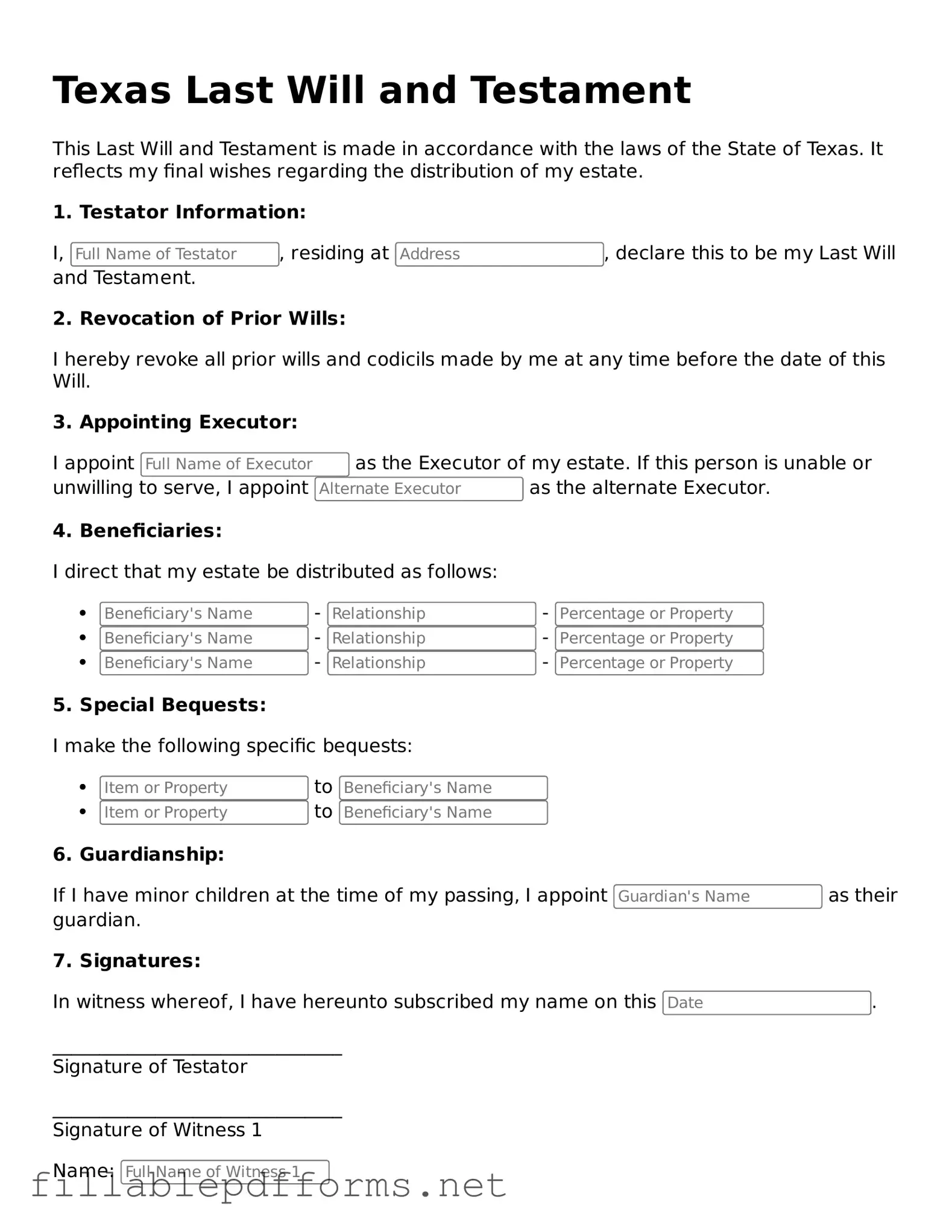Attorney-Verified Last Will and Testament Form for Texas State
A Texas Last Will and Testament form is a legal document that outlines how an individual's assets and affairs should be handled after their passing. This form ensures that personal wishes regarding property distribution and guardianship of dependents are honored. Understanding its importance can provide peace of mind and clarity for both the individual and their loved ones.
Launch Editor Here

Attorney-Verified Last Will and Testament Form for Texas State
Launch Editor Here

Launch Editor Here
or
▼ Last Will and Testament PDF
Almost there — finish the form
Complete Last Will and Testament online fast — no printing, no scanning.